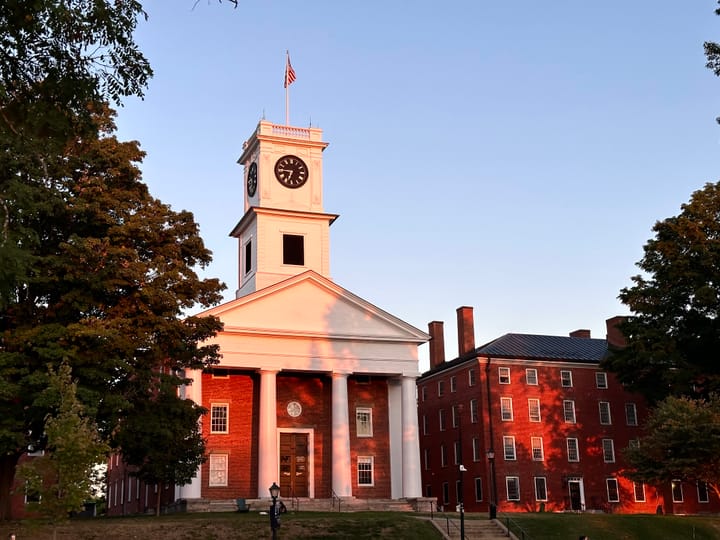Indicator Article Leads To English 6 Controversy
The controversy began when teachers at Holyoke obtained a copy of The Indicator, a College journal of social and political thought, during Parents’ Weekend. The article depicted a conversation between several students, a teacher and the article’s author Jordan Lang ’03, who was helping to teach the class at the time. The article portrays the teacher somewhat unflatteringly, in addition to reporting students’ statements without changing their names.
Because of the reaction to the article, Professor of English Barry O’Connell, who founded the program, wrote a statement of apology to Holyoke High, in which he stated that he recognized The Indicator essay “puts our whole program at risk,” according to a copy of the letter obtained by The Student.
Holyoke High has agreed to allow students to continue teaching. The high school, however, has asked Lang to stop teaching.
Both Professor O’Connell and Professor Greenebaum, who also teaches the class, refused to comment on the situation.
Lang said that he appreciates Holyoke High School’s decision to allow Amherst students to continue teaching. “I think they’ve been amazing about this. They’re totally, rightly, completely and justifiably angry about this and yet they still seem to want to preserve what trust remains between Amherst and the high school,” said Lang.
In the letter, O’Connell apologized for Lang’s article and assured the high school that he would do everything to make sure this type of incident would not occur again, starting with requiring all students in future classes to sign a pledge promising not to publish anything about their teaching experience at Holyoke High.
“Under no circumstances are our students to publish anything about their experiences at the high school,” O’Connell wrote. “But this has always been a sufficient and implicit understanding until now.”
“I thought I was going in to help out but what I didn’t realize was how much I was being educated,” said Lang. “Only now, having lost that opportunity, do I truly realize how much of a privilege it was.”
Before going to Holyoke High, students understand the trust that must exist among those involved in the program, according to Sahar Siddiqui ’02, who took English 6 last semester and has continued teaching at Holyoke. “We were made aware of the fact that when Holyoke lets us into the classroom there’s a trust relationship between Amherst and Holyoke as a whole, but also between the teacher and the students,” she said.
According to a statement released by The Indicator, the Executive Board said that they support Lang and take responsibility for all articles that appear in the publication. “While we regret that Jordan’s article has raised concern at Holyoke High School, we are an open forum on the campus of Amherst College and we firmly back the decision by Jordan to write this piece,” said the statement.
The Indicator then apologized and admitted that when publishing the article they did not take into consideration the reactions of the community.
“Often times it seems that Amherst College exists in a bubble unto itself and we, in presenting the piece as published, acted insensitively toward the relationships and trusts the College has formed with organizations and institutions such as Holyoke High School,” added The Indicator’s statement.
Lang also admitted that he did not think that his actions would have consequences outside of the College before he wrote the article, the third in a series Lang’s columns entitled “Perspectives on America.”
“What I now realize is how interconnected we are to the communities and how much my actions have affected people both outside and inside Amherst College,” said Lang.
In the article, the name of the teacher was changed but the names of the students were not. According to Lang, the reason for this discrepancy is that The Indicator raised concerns about changing the students’ names to stereotypical names of that particular culture.
The problem of the students’ names being mentioned was compounded by the controversial content of some of their statements.
The central issue of the discussion in class was about whether or not the students considered themselves American.
The article stated that when the class was asked, “What do you think it means to be an American,” a student responded, “It means you’re white. And arrogant too. They walk different and look different. They think they’re better than everyone else.”





Comments ()